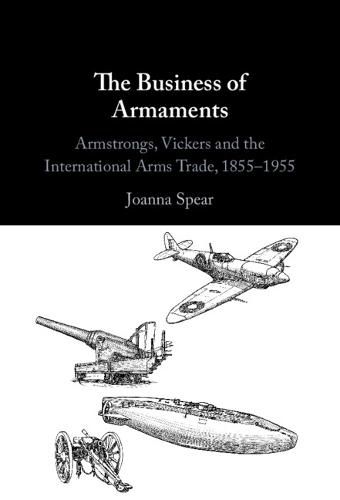Readings Newsletter
Become a Readings Member to make your shopping experience even easier.
Sign in or sign up for free!
You’re not far away from qualifying for FREE standard shipping within Australia
You’ve qualified for FREE standard shipping within Australia
The cart is loading…






How did Britain’s most prominent armaments firms, Armstrongs and Vickers, build their businesses and sell armaments in Britain and overseas from 1855 to 1955? Joanna Spear presents a comparative analysis of these firms and considers the relationships they built with the British Government and foreign states. She reveals how the firms developed and utilized independent domestic strategies and foreign policies against the backdrop of imperial expansion and the two world wars. Using extensive new research, this study examines the challenges the two firms faced in making domestic and international sales including the British Government’s commitment to laissez faire policies, prejudices within the British elite against those in trade, and departmental resistance to dealing with private firms. It shows the suite of strategies and tactics that the firms developed to overcome these obstacles to selling arms at home and abroad and how they built enduring relationships with states in Latin America, Asia, and the Middle East.
$9.00 standard shipping within Australia
FREE standard shipping within Australia for orders over $100.00
Express & International shipping calculated at checkout
How did Britain’s most prominent armaments firms, Armstrongs and Vickers, build their businesses and sell armaments in Britain and overseas from 1855 to 1955? Joanna Spear presents a comparative analysis of these firms and considers the relationships they built with the British Government and foreign states. She reveals how the firms developed and utilized independent domestic strategies and foreign policies against the backdrop of imperial expansion and the two world wars. Using extensive new research, this study examines the challenges the two firms faced in making domestic and international sales including the British Government’s commitment to laissez faire policies, prejudices within the British elite against those in trade, and departmental resistance to dealing with private firms. It shows the suite of strategies and tactics that the firms developed to overcome these obstacles to selling arms at home and abroad and how they built enduring relationships with states in Latin America, Asia, and the Middle East.